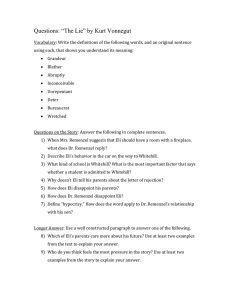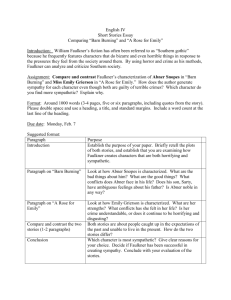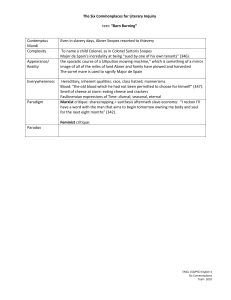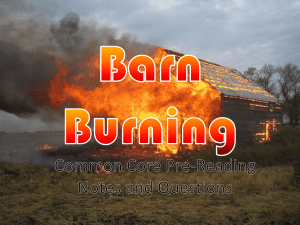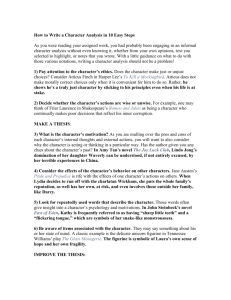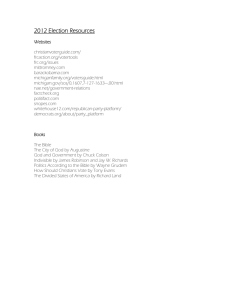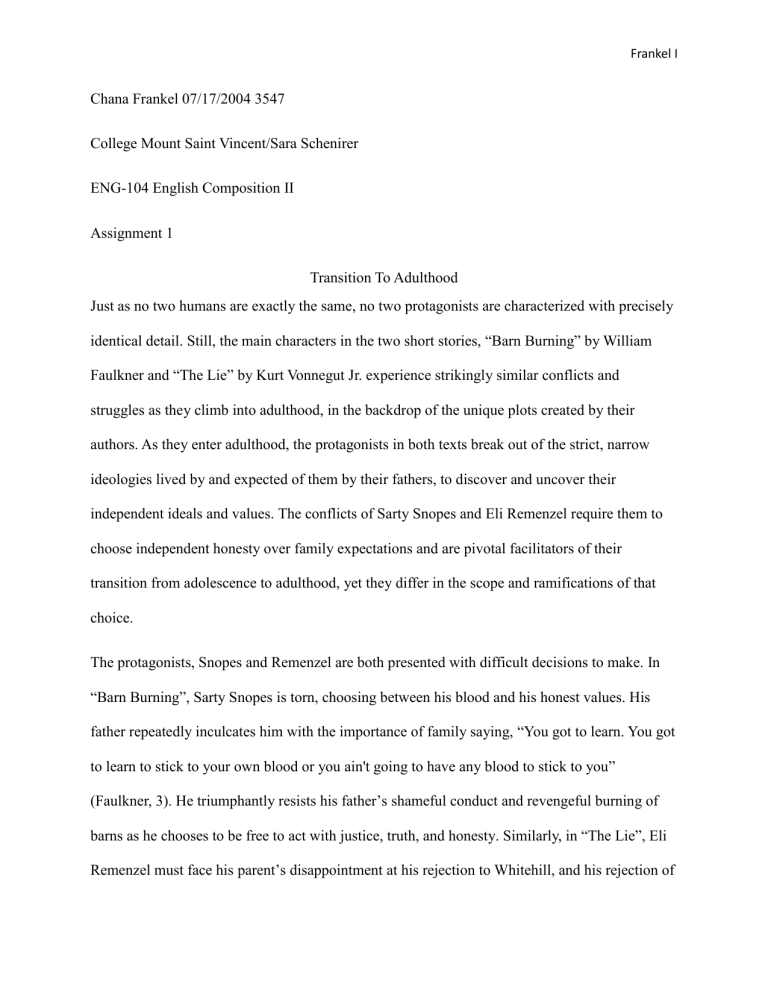
Frankel I Chana Frankel 07/17/2004 3547 College Mount Saint Vincent/Sara Schenirer ENG-104 English Composition II Assignment 1 Transition To Adulthood Just as no two humans are exactly the same, no two protagonists are characterized with precisely identical detail. Still, the main characters in the two short stories, “Barn Burning” by William Faulkner and “The Lie” by Kurt Vonnegut Jr. experience strikingly similar conflicts and struggles as they climb into adulthood, in the backdrop of the unique plots created by their authors. As they enter adulthood, the protagonists in both texts break out of the strict, narrow ideologies lived by and expected of them by their fathers, to discover and uncover their independent ideals and values. The conflicts of Sarty Snopes and Eli Remenzel require them to choose independent honesty over family expectations and are pivotal facilitators of their transition from adolescence to adulthood, yet they differ in the scope and ramifications of that choice. The protagonists, Snopes and Remenzel are both presented with difficult decisions to make. In “Barn Burning”, Sarty Snopes is torn, choosing between his blood and his honest values. His father repeatedly inculcates him with the importance of family saying, “You got to learn. You got to learn to stick to your own blood or you ain't going to have any blood to stick to you” (Faulkner, 3). He triumphantly resists his father’s shameful conduct and revengeful burning of barns as he chooses to be free to act with justice, truth, and honesty. Similarly, in “The Lie”, Eli Remenzel must face his parent’s disappointment at his rejection to Whitehill, and his rejection of Frankel II his parent’s expectations and standards. His mother later affirms that “Your father and I have always made you feel that you had to go to Whitehill, that nothing else would do” (Vonnegut, 12). Both protagonists struggle between the expectations of their family, and reality. The struggles and choices of Sarny Snopes and Eli Remenzel both facilitate their transition into adulthood. Sarny Snopes, empowered by his values, chooses to leave behind his family and security for the unknown. This confident decision indicates that he is on the path to adulthood. Similarly, Eli Remenzel must choose to accept the reality of his rejection to Whitehill. This failure, and his ultimate acceptance of it molds the dependent Remenzel into a mature, independent adult. The author writes that after his lie is revealed, he sits “on a bench in a bower of lilacs that had just begun to bud” (Vonnegut, 11). This seems to indicate that Remenzel only begins to truly bloom into a mature adult when he learns to accept, and to pave a unique path that is not dependent on his family’s expectations. However, the ramifications of the choices of the protagonists are very different. Sarny Snopes, following his clear value system leaves his home and “He did not look back” (Faulkner, 12). He abandons his home, his family, and his only security for the wilds of the unknown. He chooses to brave the scariness of life alone because that compass points in line with his values. In contrast, Eli Remenzel continues to live at home and to be taken care of by his loving parents. The struggles he overcomes allow him to move forward and to flourish on his unique life journey. The ramifications of his conflict are not as far-reaching or intense as those of Sarny Snopes’. In conclusion, Sarny Snopes in “Barn Burning” and Eli Remenzel in “The Lie” are forced to make a central decision as they enter adulthood, albeit on different levels. Sarny Snopes chooses to stand up for what he knows is right. With fierce determination, he leaves his familiar family life behind for the unknown, because he knows that his father’s burning of barns is incorrect. Eli Frankel III Remenzel also embarks on a path different from what his parents expected. It is interesting to see how two characters in two different short stories both undergo conflicts that mark their entry into the world of independent adulthood. Frankel IV Works cited Faulkner, William. “Barn Burning” Vonnegut, Kurt. “The Lie”

